#Ubuntu
Text

splash animation from Xubuntu 6.06
1K notes
·
View notes
Text
sudo apt-get install estrogen
1K notes
·
View notes
Text
http://ubuntu.ubuntu.ubuntu.ubuntu.ubuntu.ubuntu.ubuntu.ubuntu.ubuntu.ubuntu.ubuntu.ubuntu.ubuntu.ubuntu.ubuntu.ubuntu.ubuntu.ubuntu.ubuntu.ubuntu.ubuntu.ubuntu.ubuntu.ubuntu.ubuntu.ubuntu.ubuntu.ubuntu.ubuntu.ubuntu.ubuntu.archive.ubuntu.com/ubuntu/ubuntu/ubuntu/ubuntu/ubuntu/ubuntu/ubuntu/ubuntu/ubuntu/ubuntu/ubuntu/ubuntu/ubuntu/ubuntu/ubuntu/ubuntu/ubuntu/ubuntu/ubuntu/ubuntu/ubuntu/ubuntu/ubuntu/ubuntu/ubuntu/ubuntu/ubuntu/ubuntu/ubuntu/ubuntu/ubuntu/ubuntu/ubuntu/ubuntu/ubuntu/ubuntu/ubuntu/ubuntu/ubuntu/ubuntu/
369 notes
·
View notes
Text
The best free software
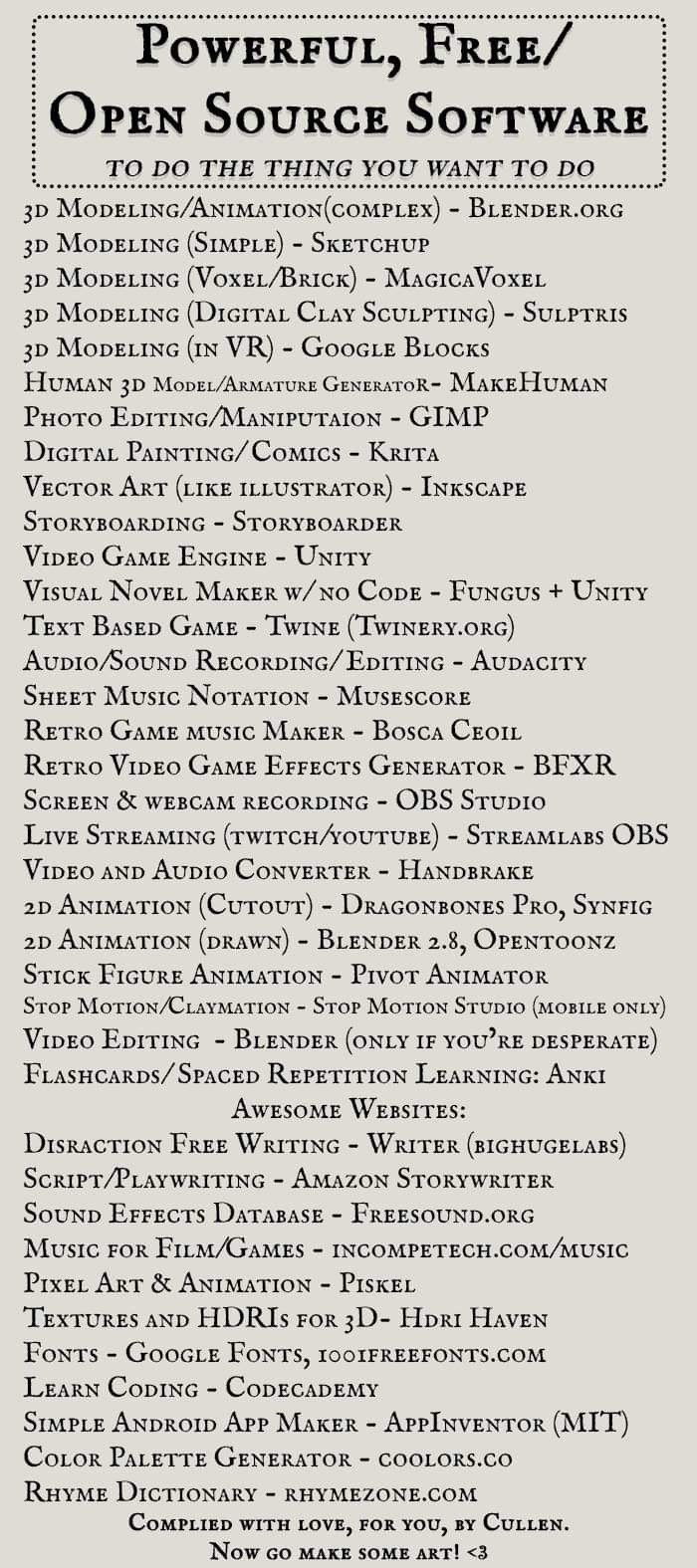
1K notes
·
View notes
Text
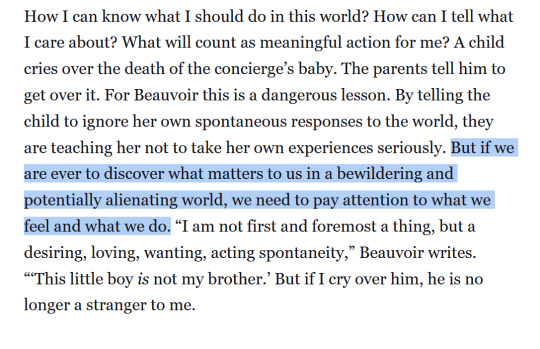
Toril Moi, from "Reciprocal Otherness: Simone de Beauvoir on freedom and difference", pub. The Point Magazine [ID'd]
#q#lit#quotes#essays and articles#reciprocal otherness#toril moi#the point magazine#id included#ubuntu#m#z
408 notes
·
View notes
Text
What happens when you start your computer ? ( Booting a computer )
We studied this in the lecture today, and it was quite interesting. What makes something a hundred times simpler than it is? Creating a story about it. That's why I made this super fun dialog that will help you understand it all.
I've set up a drive to compile everything I create related to the Linux operating system. Feel free to explore it for more details on the topics discussed in the conversation below. Check it out here.
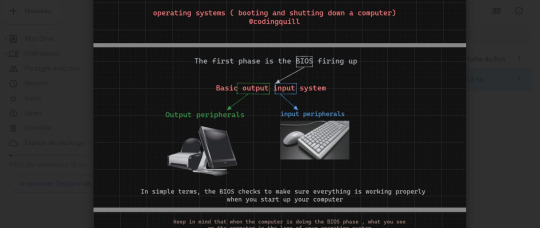
Have a fun read, my dear coders!
In the digital expanse of the computer, Pixel, the inquisitive parasite, is on a microventure with Binary, a wise digital guide. Together, they delve into the electronic wonders, uncovering the secrets hidden in the machine's core.
Pixel: (zooming around) Hey there! Pixel here, on a mission to demystify the tech wonders . There's a creature named Binary who knows all the ins and outs. Let's find them!
Binary: (appearing with a flicker of pixels) Pixel, greetings! Ready to explore what happens inside here?
Pixel: Absolutely! I want the full scoop. How does this thing come alive when the human outside clicks on "start"?
Binary: (with a digital chuckle) Ah, the magic of user interaction. Follow me, and I'll reveal the secrets.
(They traverse through the circuits, arriving at a glowing portal.)
Pixel: (inquiring) What's the deal with this glowing door?
Binary: (hovering) Pixel, behold the BIOS - our machine's awakening. When the human clicks "start," the BIOS kicks in, checking if our components are ready for action.
(They proceed to observe a tiny program in action.)
Pixel: (curious) Look at that little messenger running around. What's it up to?
Binary: (explaining) That, Pixel, is the bootloader. It plays courier between the BIOS and the operating system, bringing it to life.
Pixel: (excitedly buzzing) Okay! How does the computer know where to find the operating system?
Binary: Ah, Pixel, that's a tale that takes us deep into the heart of the hard disk. Follow me.
(They weave through the digital pathways, arriving at the hard disk.)
Pixel: (curious) Huh? Tell me everything!
Binary: Within this hard disk lies the treasure chest of the operating system. Let's start with the Master Boot Record (MBR).
(They approach the MBR, Binary pointing to its intricate code.)
Binary: The MBR is like the keeper of the keys. It holds crucial information about our partitions and how to find the operating system.
Pixel: (wide-eyed) What's inside?
Binary: (pointing) Take a look. This is the primary boot loader, the first spark that ignites the OS journey.
(They travel into the MBR, where lines of code reveal the primary boot loader.)
Pixel: (in awe) This tiny thing sets the whole show in motion?
Binary: (explaining) Indeed. It knows how to find the kernel of the operating system, which is the core of its existence.
(They proceed to the first partition, where the Linux kernel resides.)
Pixel: (peering into the files) This is where the OS lives, right?
Binary: (nodding) Correct, Pixel. Here lies the Linux kernel. Notice those configuration files? They're like the OS's guidebook, all written in text.
(They venture to another partition, finding it empty.)
Pixel: (confused) What's the story with this empty space?
Binary: (smirking) Sometimes, Pixel, there are barren lands on the hard disk, waiting for a purpose. It's a canvas yet to be painted.
Pixel: (reflecting) Wow! It's like a whole universe in here. I had no idea the operating system had its roots in the hard disk.
(They continue their microventure, navigating the binary landscapes of the computer's inner world.Pixel gazes at the screen where choices appear.)
Pixel: What's happening here?
Binary: (revealing) This is where the user picks the operating system. The computer patiently waits for a decision. If none comes, it follows the default path.
(They delve deeper into the digital code, where applications start blooming.)
Pixel: (amazed) It's like a digital garden of applications! What's the enchantment behind this?
Binary: (sharing) Here, Pixel, is where the applications sprout to life. The operating system nurtures them, and they blossom into the programs you see on the screen.
Pixel: (excited) But how does the machine know when the human clicks "start"?
Binary: It's the BIOS that senses this initiation. When the human triggers "start," the BIOS awakens, and we embark on this mesmerizing journey.
#linux#arch linux#ubuntu#debian#code#codeblr#css#html#javascript#java development company#python#studyblr#progblr#programming#comp sci#web design#web developers#web development#website design#tech#html css#operatingsystem#windows 11
312 notes
·
View notes
Text
Making a whole ass back up of my puter so I can get rid of Windows completely and be a lil Linux fucko
152 notes
·
View notes
Text
Solarpunk Tumblr is a little piece of joy that restores hope and renews vision.
Like, I grew up in a city with a fragile ecosystem and small floral kingdom. I grew up in a country wherein the roots of Ubuntu run deep (faint, at times, but deep). I grew up a child of missionaries who taught me to exegete and, to some degree*, had been led and inspired by anti racists of their time (inner city Louisville in the 80s).
When I moved back to the US, the Christianity I saw was not what I had been taught. The ethos was consumerism, not consideration. The environment was exploited, not protected. I grew weary of being the radical, leftist, ecohippie at my Christian college, medical school, residency, and job. I've gotten quieter and quieter over the years about humanism, native endemic gardening, and even my faith.
Seeing the existence of solarpunk as a movement - and not a small movement - restores some of that optimism, where I had thought it dead. It's refreshing to know I'm not alone and, while many in the solarpunk movement might not be Christian, I find that it still meshes and fits with the faith I was initially taught, that our world and every thing and person in it is a beautiful creation, a masterpiece, and that it is our responsibility, our very first and most primal job, to shepherd and steward it, to maintain it and allow it to thrive, for itself, each other, and the one who I believe gave it to us.
(*and, granted, my parents, like most boomers, became colorblind, missed unconscious bias and systemic racism, and fixated on abortion, but, for the time I was in their house, they actively corrected overt racism and discussed the racist harms of US history)
#solarpunk#hopepunk#exvangelical#ex fundamentalist#exvangelical christian#ubuntu philosophy#ubuntu#ecology#permaculture#genesis 1#missionary kid
210 notes
·
View notes
Text
やった~!! I hunted down every signboard at JR as I could!






Some zoom ins and a fanart too! *update, the artist is:
https://twitter.com/yu_ki_koo/status/1686526034798395396?t=1lMLvef6r_hTukPaUbI_wg&s=19
Many thanks to @psych0pie




We're going nuts here in Japan over Jack's muscles and Riddle's midriff. <3
#disney#twisted wonderland#phone games#lilia vanrouge#twst lilia#riddle rosehearts#ace trappola#jack howl#azul ashengrotto#twst azul#twst floyd#twst jack#twst ace#stitch#lilo and stitch#ubuntu#summer#heartslabyul#octovinelle#savanaclaw#torso supremacy
244 notes
·
View notes
Text
Microsoft burying the settings to disable advertisements baked into the operating system of Windows 11 into three separate hard to find options menus all while using vague & deceptive wording and forced system updates to Windows 11 should be the wake-up call for consumers to start figuring out how to install and use Linux distributions.
I can recommend:
Linux Mint – For a user experience most akin to Windows
Ubuntu – For overall user-friendliness (once you get used to the changes compared to Windows) and the broadest selection of easy-to-install apps
Lubuntu – For older hardware in need of reinvigoration
170 notes
·
View notes
Text

Wubi (2008-2012) - a tool that installs Linux from inside Windows
799 notes
·
View notes
Text
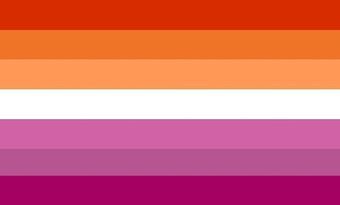
Check it out guys, it's the Ubuntu pride flag. The orange and white represent the Ubuntu logo, while the pink represents the fact that linux users are gay!
700 notes
·
View notes
Text

76 notes
·
View notes
Text
Starting today, I'm going to rate all Linux commands. Let us begin with cowsay.
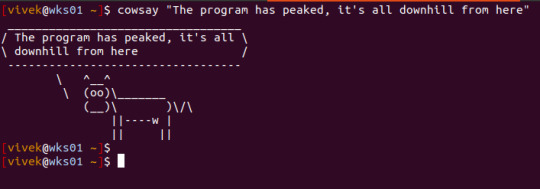
PERSONAL RATING: ⭐️⭐️⭐️⭐️⭐️ 5/5
208 notes
·
View notes
Text
"For Merleau-Ponty, consciousness can never be a ‘nothingness’ radically divided from being, as Sartre had proposed in Being and
Nothingness. He does not even see it as a ‘clearing’, like Heidegger. When he looks for his own metaphor to describe how he sees consciousness, he comes up with a beautiful one: consciousness, he suggests, is like a ‘fold’ in the world, as though someone had crumpled a piece of cloth to make a little nest or hollow. It stays for a while, before eventually being unfolded and smoothed away.
There is something seductive, even erotic, in this idea of my conscious self as an improvised pouch in the cloth of the world. I still have my privacy — my withdrawing room. But I am part of the world’s fabric, and I remain formed out of it for as long as I am here."
—Sarah Bakewell, At the Existentialist Café
#q#MY BOY <3#lit#quotes#sarah bakewell#at the existentialist cafe#maurice merleau ponty#ubuntu#forever favourite#*#m#reading#x
301 notes
·
View notes
Text
What is the kernel of an operating system ?
You can think of the kernel as the core component of an operating system, just like the CPU is the core component of a computer. The kernel of an operating system, such as the Linux kernel, is responsible for managing system resources ( such as the CPU, memory, and devices ) . The kernel of an operating system is not a physical entity that can be seen. It is a computer program that resides in memory.
Key points to understand the relationship between the kernel and the OS:
The kernel acts as the intermediary between the hardware and the software layers of the system. It provides a layer of abstraction that allows software applications to interact with the hardware without needing to understand the low-level details of the hardware
The kernel controls and manages system resources such as the CPU, memory, devices, and file systems. It ensures that these resources are allocated and utilized efficiently by different processes and applications running on the system.
The kernel handles tasks like process scheduling, memory management, device drivers, file system access, and handling interrupts from hardware devices.
The kernel can be extended through the use of loadable kernel modules (LKM). LKMs allow for the addition of new functionality or device drivers without modifying the kernel itself.
#linux#arch linux#ubuntu#debian#code#codeblr#css#html#javascript#java development company#python#studyblr#progblr#programming#comp sci#web design#web developers#web development#website design#webdev#website#tech#html css#learn to code#Youtube
190 notes
·
View notes